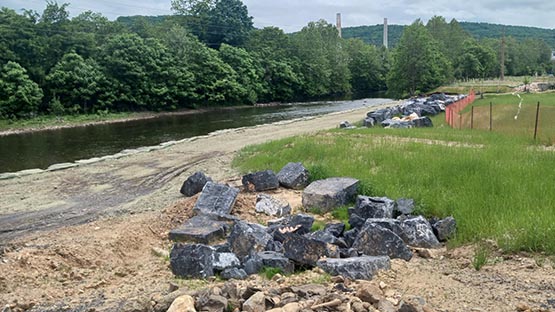
The original study, funded by Elevate Early Education, a statewide collaborative venture supported through public and private investments, involved a representative sample of 2,036 children in 100 classrooms from 16 school divisions across the state. The new funding will allow the team to begin the process of statewide implementation of the expanded assessments, with the ultimate goal of making these assessments available to all Virginia schools over the next five years.
This fall, the team will work with a limited number of school divisions, assessing roughly 500 classrooms. This graduated roll-out will allow for continued input from stakeholders to enhance feasibility and usefulness of the assessment system for teachers, schools, divisions and the commonwealth.
The January report was the result of a two-year study in which Amanda Williford, research assistant professor and the Virginia Kindergarten Readiness Project’s lead investigator; Jason Downer, associate professor and director of the Center for Advanced Study of Teaching and Learning, where the project is housed; and their team of researchers worked to identify the tools that teachers could use to assess kindergarteners’ skills in four domains of development: literacy, math, self-regulation and social development.
“We had two goals we focused on in selecting the assessments we did,” Williford said. “Could they give us accurate information about the student and were they teacher-friendly?”
By “teacher-friendly,” Williford required the assessments be easy to complete and that they could offer information that teachers can use to guide their instruction during the school year.
For more than a decade, the kindergarten teachers in almost every school division in Virginia have been assessing the literacy skills of their students using Phonological Awareness Literacy Screening, a tool created in 1997 at the Curry School by Marcia Invernizzi, professor of reading education.
“The information teachers gain from the PALS screening is critical,” Williford said. “We aimed to expand the information teachers have about their new students beyond literacy to other areas – mathematics, self-regulation and social skills – where students need to develop in order to succeed in kindergarten and further into elementary school.”
The research team decided to take full advantage of both the success of the PALS program and the proximity of its creator.
“As we began to consider the complexities of expanding a multi-domain assessment statewide, we knew we needed Marcia, not only as an advisor, but as a partner,” Williford said.
Williford’s team will build their assessments directly into the existing PALS platform, which is already familiar to kindergarten teachers in Virginia. Integrating the assessments will also mean teachers that teachers can enter child demographic data in a single place and will be able to access reports that integrate the data across the readiness domains.
“The PALS office is thrilled to partner with the Virginia Kindergarten Readiness Project and we look forward to expanding the teacher-friendly, instructionally transparent services that have been the hallmark of the PALS suite of literacy assessments for years,” Invernizzi said.
The focus for the Virginia Kindergarten Readiness Project is for teachers to have the necessary information about their students to guide their instruction for the coming year across multiple learning domains.
“With the goal in mind of making the information from these assessments useful to the teachers, our team will be working closely with the Virginia Department of Education, as well as spending a large amount of time this year talking with teachers and administrators as we roll out the system across the new schools,” Williford said. “We’ll be asking them what they need built into the system to make it work better for them.”
In addition to training teachers on the new system, the research team will work with teachers to identify strategies they can use to incorporate the information they gain into their lesson plans.
“In the system itself, it is our hope that when teachers sees an area where a child is struggling, ideas and strategies for how to close the gap for that child will be a simple click away,” Williford said.
The new assessments are voluntary and come at no additional expense to the schools that chose to participate.
“The VKRP project is really Curry at its best,” said Robert C. Pianta, dean of the Curry School. “The project draws together world-class faculty with expertise in young children’s development and education and pairs that expertise with a strategic need of the commonwealth. The new and expanded tools developed in this project will enable teachers, school divisions and the state to make much better informed decisions to support the success of young children across all areas of their development.”
The research team is still working to identify the 500 schools in which they will be working in the 2015-16 school year. For information on how your school division can participate, contact Wanda Weaver at [email protected].
E3: Elevate Early Education is an entrepreneurial statewide advocacy movement created by business, civic and philanthropic leaders to raise awareness and advocate for strategic investments in early education. The funding for the pilot study was provided through public and private investments. The state appropriated $250,000 through the Virginia Department of Social Services, which was supplemented with $500,000 in private funds from the Batten Educational Achievement Fund of the Hampton Roads Community Foundation.










